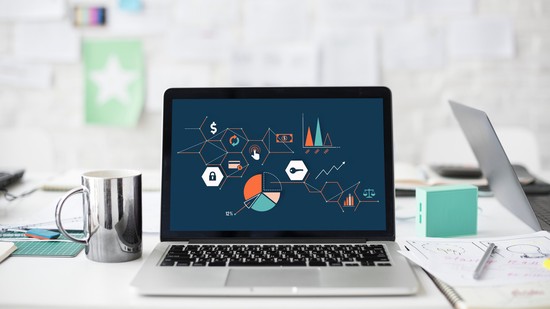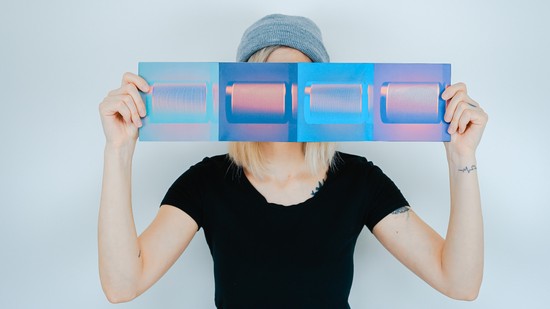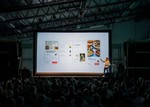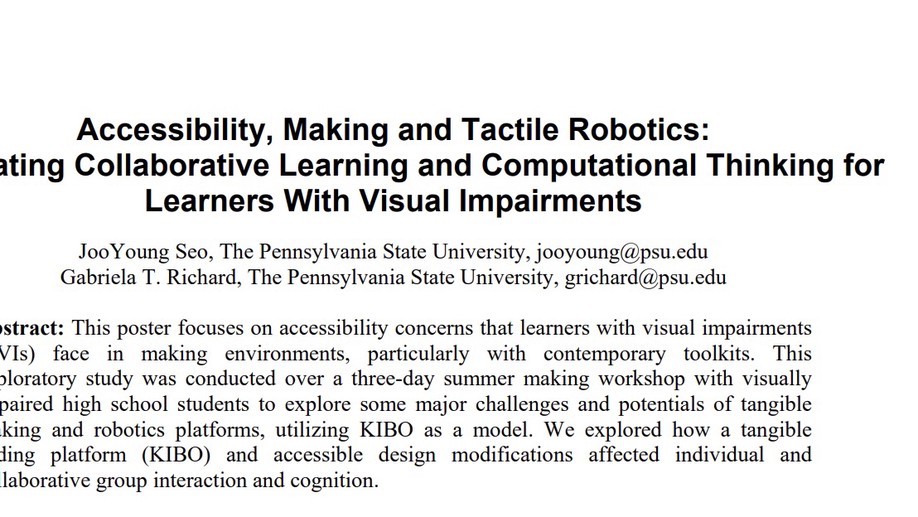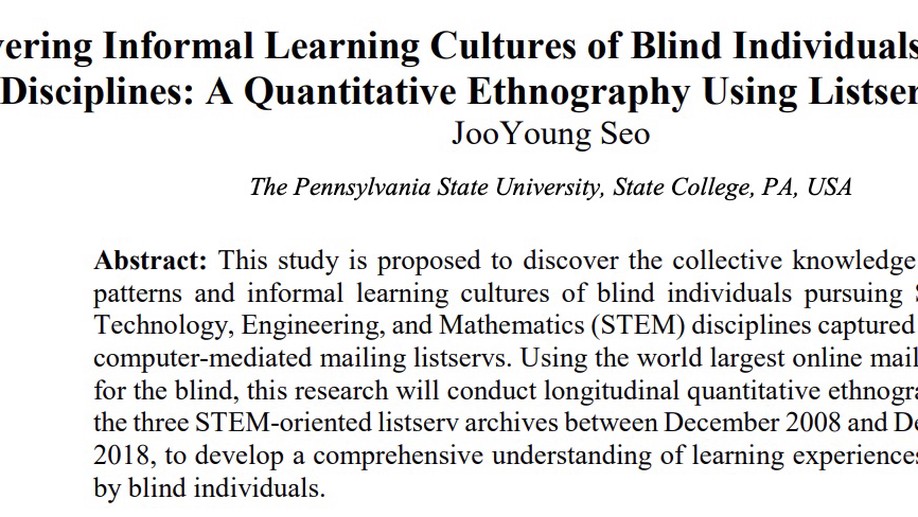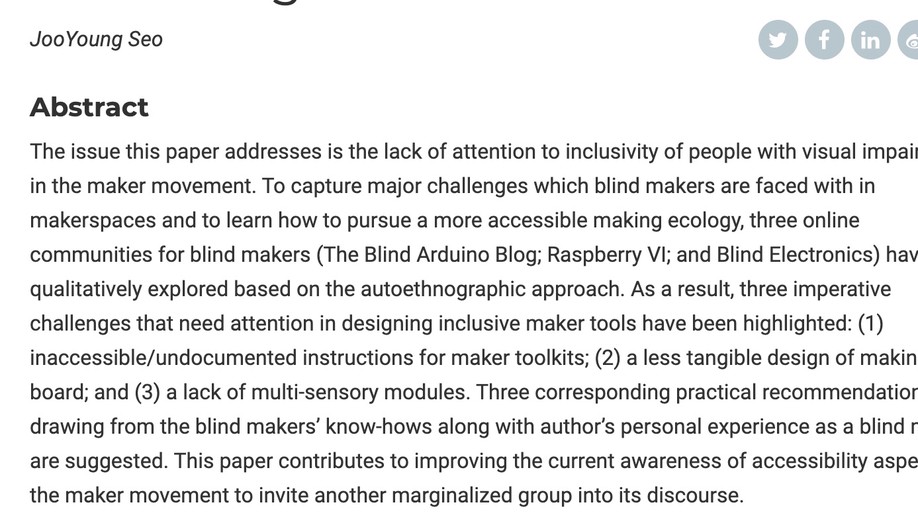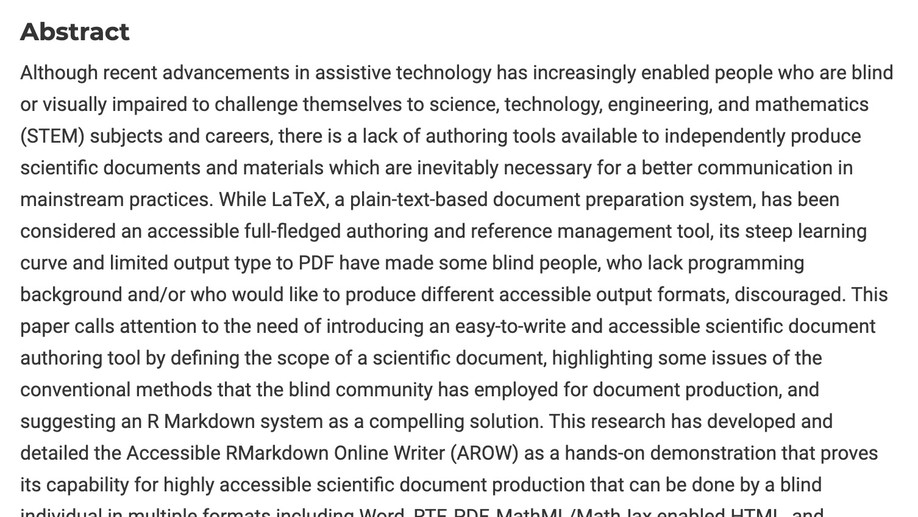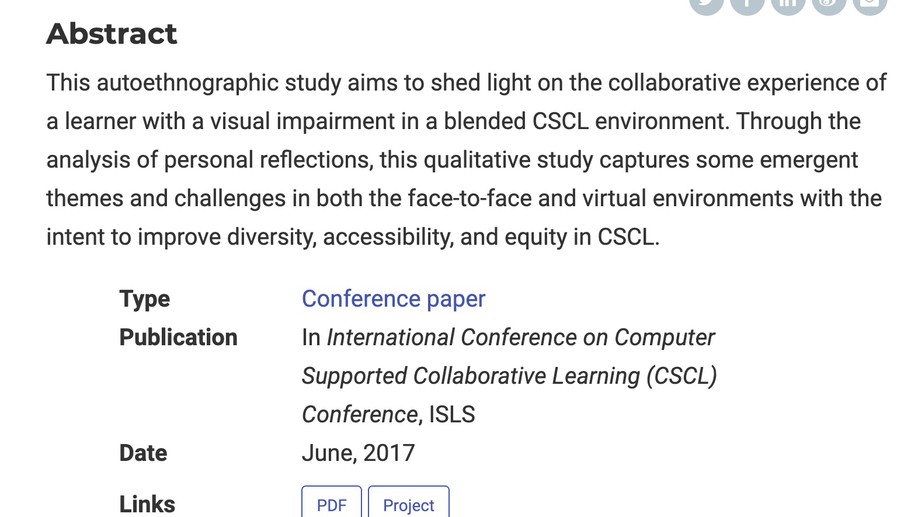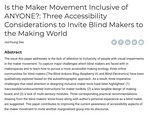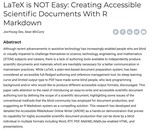JooYoung Seo
Ph.D. in Learning, Design, and Technology
The Pennsylvania University
Biography
JooYoung Seo is an assistant professor in the School of Information Sciences (iSchool) at the University of Illinois at Urbana-Champaign (UIUC), RStudio’s trusted data-science instructor (e.g., Tidyverse & Shiny), and internationally certified accessibility professional.
As a learning scientist and software engineer, his research topics involve accessible computing for all learners with dis/abilities, inclusive makerspaces, and Computer-Supported Collaborative Learning (CSCL) and Human-Computer Interaction (HCI) with special focus on accessibility and universal design.
He is an avid R and Python programmer who has developed and published some statistical computing packages to the peer-reviewed Comprehensive R Archive Network (CRAN) including {ezpickr} , {mboxr}
, and {youtubecaption}
while leading the projects on reproducible research templates for Journal of Learning Analytics and Journal of Educational Data Mining.
He is also an official code-contributor (CTB) for some notable data science packages, such as shiny, rmarkdown, bookdown, distill, and more.
His expertise in both data science and accessibility offered opportunity for him to intern at RStudio in summer 2020 to officially be involved in accessibility-related projects for RStudio Server/Desktop IDE and their other products (e.g., shiny).
For more information on JooYoung Seo can be found in his downloadable/online CV, and reproducible source code behind the CV is also available on his GitHub repository.
Interests
- Learning Analytics/Statistical Computing
- Data Science-Based Reproducible Research
- Large-Scale Virtual/Computational Ethnography
- Supervised/Unsupervised Machine Learning-Based Text Mining (Computational Linguistics)
- Inclusive Learning Sciences and CSCL across dis/abilities
- Inclusive Makerspaces for Underrepresented STEM Learners
- Computational Thinking for Learners with dis/ABILITIES
- Accessible Human-Computer Interaction (HCI)
- Universal Design/Accessibility
- Assistive Technology
Education
-
Ph.D. in Learning, Design, and Technology, 2021
The Pennsylvania State University
-
M.Ed. in Learning, Design, and Technology, 2016
The Pennsylvania State University
-
Double B.A. in Education and English Literature, 2014
Sungkyunkwan University, Seoul, South Korea
